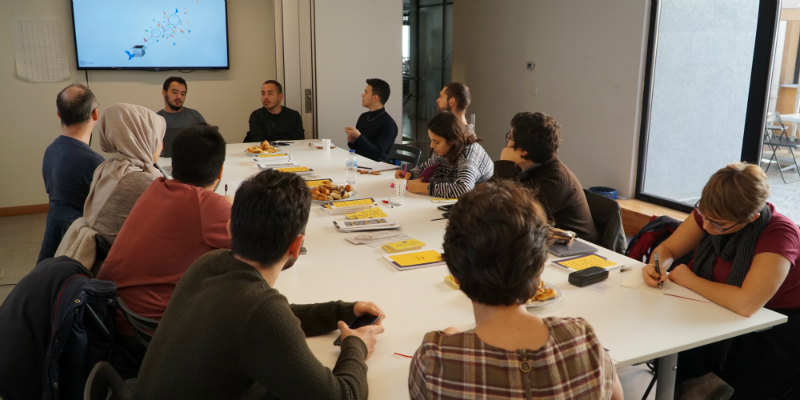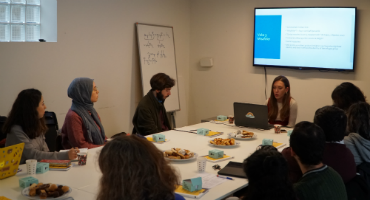Organized by ASULIS Discourse, Dialog and Democracy Laboratory of Hrant Dink Foundation, three researches from different disciplines on queer theory and methodology were discussed in the first session of the series 'Asulis Social Sciences Grad Students Workshops'. The workshop was held in Hrant Dink Foundation Anarad Hığutyun Building on October 26.
ASULIS aims to encourage pluralism, the ideal of coexistence and future researchers who will carry out new studies in this field. Organized with this purpose, the workshops aims to enable the discussion of master theses, facilitating dialog between researchers studying this topic and making academics and researchers come together.
Firstly, Emirhan Deniz Çelebi’s thesis, which he submitted to Yıldız Technical University Department of Sociology in 2018, with the title “The Sociological Analysis Of Factors Affecting Coming Out Process Of Trans Men In Turkey” was discussed. With the quotations from his in-depth interviews with individuals who define themselves as trans men, Çelebi reviewed the social aspects of the factors that affecting coming out process of trans men in Turkey. He discussed his findings under the titles “the cis-gender heteronormative system”, “prejudice and stigmatization”, “legal gender recognition process”, “difficulties in obtaining of social and economic rights”, “anxiety, confidence and coming out”, and “technical and communicative modernization”. Cenk Özbay from Sabancı University Department of Cultural Studies assessed Çelebi’s thesis. As part of a methodological discussion, Özbay emphasized the scope of the selected sample and reminded that the findings are informed by quotations from a certain class. Pointing out the lack of literature on the concept “coming out” in Turkey, Özbay stated that “coming out” accounts of trans identities need different conceptualizations.
Secondly, Ceren Aydın’s thesis, which she submitted to Sabancı University Department of Cultural Studies in 2018, with the title “Medicalization Of Intersex And Variations Of Sex Characteristics: An Analysis Of The Medical Procedures Through Narratives Of Clinicians And Intersex Individuals In Turkey” was discussed. In the thesis, Aydın reviewed her findings based on the field work focusing on how medicine works as an institution for intersex individuals; why clinicians make early, non-consensual, and medically questionable surgical interventions; how medical procedure has changed in recent years; and how clinicians tell about the situation to their patients.
Lastly, Sevcan Tiftik’s thesis, which she submitted to İhsan Doğramacı Bilkent University Department of Turkish Literature in 2017, with the title “Comparative Queer Readings: Queer Potentials In The Texts Of Kulin, Mungan And Toptaş” was discussed. Tiftik examined Ayşe Kulin’s tetralogy consisting of Gizli Anıların Yolcusu, Bora’nın Kitabı, Dönüş, and Handan; Murathan Mungan’s stories Son İstanbul, Cenk Hikâyeleri, Kaf Dağının Önü, Üç Aynalı Kırk Oda; and Hasan Ali Toptaş’s novels Sonsuzluğa Nokta, Bin Hüzünlü Haz, Gölgesizler and Uykuların Doğusu under the light of queer theory. Sibel Irzık, who is a faculty member of Sabancı University Department of Cultural Studies, assessed Tiftik’s thesis. Pointing out the importance of Tiftik’s thesis since she analyzed authors who have never been read together and she made them communicate to each other, Irzık stated that queerness has a closer relationship with literature compared to other disciplines. Stating that literature has the power of expressing its own language, questioning the boundaries, imaging outside of what is already there and challenging it, teaching to step outside the normal perspective by looking at what is normal from different angles, Irzık told that it is thus possible to say that literature is a sort of queerness in itself.





